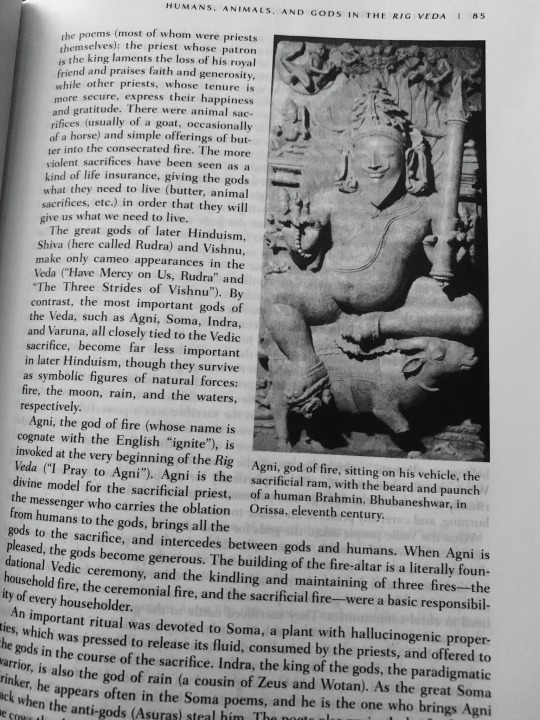#rig veda
Text

I will always have a special place in my heart of this agnostic section of the Rig Veda. The courage to be able to be skeptical about how this universe came to be, and about their own hypotheses provided in these lines, is a big deal. The ability to say "we don't know" or "we might be wrong", is beautiful, to be aware of your theories having a tendency to be flawed or falsifiable. I'm just SMITTEN by this.
#rig veda#nasadiya sukta#hinduism#hindu mythology#hindu#hindublr#desiblr#desiposting#desi tag#desi tumblr#hindu scriptures
92 notes
·
View notes
Photo

hello, long time no see!
I spent last days crying and thinking about what Taishakuten was like in Celes world.
#ashuraou#CLAMP#clamp fanart#Tsubasa RESERVOIR CHRONICLE#rgveda#taishura#хроника крыльев#tsubasarc#帝阿#阿修羅王#帝釈天#rig veda#taishakuten#greyredroy art#greyredroy#my art
137 notes
·
View notes
Text
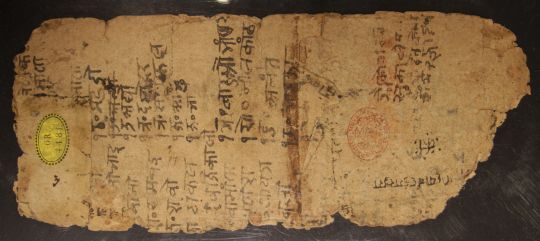
A portion of a hymn from the Rig Veda, the oldest Vedic text in Sanskrit. The Vedas are India's oldest collection of religious texts, dating back to 1500 BCE. This manuscript is likely from the 1500s or 1600s.
{WHF} {Ko-Fi} {Medium}
97 notes
·
View notes
Text
Horses in Indian and Hindu Mythology

Aśva (अश्व)—Sanskrit word for the animal “horse”.
Aśva—The horse is said to have been born of the Creator’s feet.
The word for horse in Vedas is vaja. It is derived from the root vaj or uj, which also gives the word, vajra which means hard and mighty; it is also the name of Indra’s celebrated weapon with which he reduces his foes.
Thus, the word stands not only for the horse but also for the strength, speed, and impetuosity of a horse and for the general ideas of power, energy, swiftness, heroism, virility, and invincibility in war. The horse in Vedas symbolizes energy.
In Vedic Astrology, Ashwini Nakshatra is the first Nakshatra among the 27 Nakshatras, falling under the zodiac sign of Aries.
The word Ashwini means 'horse-like' or 'one who possesses horses' or 'one who tames horses'.
Aśva represents the number 7 in the “word-numeral system” (bhūtasaṃkhyā), which was used in Sanskrit texts dealing with astronomy, mathematics, and metrics, as well as in the dates of inscriptions and manuscripts in ancient Indian literature.
tip me via paytm : aashi2@paytm
— to know more about significance of horses in hindu mythology,
check the full post here 🧡
#horses#ashwini nakshatra#veda#rig veda#astrology community#astro community#vedic culture#vedic astrology#vedas#hindu mythology#indian mythology#indian culture#hinduism#aśva#horse in hindu mythology#astroblr
49 notes
·
View notes
Text
There are ancient oral traditions, still repeated by the elders of some of the more remote islands, which provide an explanation for the Maldives' atmosphere of lost prehistoric grandeur and for its strange ruins. These traditions speak of a mysterious people called the Redin, said to have built the hawittas, who were described to me by Naseema Mohamed, a scholar at the Maldives National Institute for Linguistic and Historical Research, as:
"Very tall. They were fair-skinned, and they had brown hair, blue eyes sometimes. And they were very, very good at sailing. So this story has been around in Maldives for many, many years, and there are certain places where they say the Redin camped here, and certain places which they say here the Redin were buried. But we don't really know how old or how long ago it happened."
During his series of research visits to the Maldives, Thor Heyerdahl collected and compiled Redin legends from all parts of the archipelago. He concludes that in the memory of the islanders the Redin were 'a former people with more than ordinary human capacities':
"The Redin came long before any other Maldivians. Between them and the present population other people had also come, but none were as potent as the Redin, and there were many of them. They not only used sail but also oars, and therefore moved with great speed at sea ..."
Such notions of humans with supernatural or even god-like powers flying swiftly across the sea in their boats with sails and oars is strangely reminiscent of the imagery of the Rig Veda ... concerning the Asvins - who are several times praised for having conducted a daring rescue in the depths of the Indian Ocean:
"Yea Asvins, as a dead man leaves his riches, Tugra left Bhujyu in the cloud of waters ... Ye brought him back in animated vessels ... Bhujyu ye bore ... to the sea's farther shore, the strand of ocean ... Ye wrought that hero exploit in the ocean which giveth no support, or hold, or station, what time ye carried Bhujyu to his dwelling borne in a ship with hundred oars, O Asvins."
Thor Heyerdahl makes a case that there is real history behind the Redin myth, that it is older than the date now confirmed by radiocarbon for the construction of the hawittas - which tradition nevertheless attributes to the Redin - and that the people it refers to probably originated in north-west India, the primary setting of the Rig Veda ... [at] the great marine dockyard of the Indus-Sarasvati civilization at Lothal [north-west India] ... cowrie shells from the Maldives (Cyprea Moneta) have been excavated amongst the ruins and are to be seen in the site museum ...
— Graham Hancock, Underworld: The Mysterious Origins of Civilization, ch. 13, section The Secret of the Redin
#graham hancock#underworld#the mysterious origins of civilization#india#ancient india#hindu#hinduism#sanskrit#redin#rig veda#asvins#maldives#ancient civilizations#great deluge#antediluvian world#the great flood#flood#great flood#deluge#antediluvian#pre-flood
11 notes
·
View notes
Text
7 Laws Of Karma by Lord Shiva:
1. Truth
The first law of Shiva Karma is the truth. This law asks the followers to follow the path of truth, justice, and being true to themselves and those who are around. Remember that dishonesty and false deeds may prevail in small battles, but the truth always wins the war.
2. Knowledge is God.
A single person cannot possess the knowledge of everything, but everyone may possess the knowledge of something. We should find that seed of knowledge within us, and then do all our karma around it.
3. Everything is an illusion.
No matter what life you’re living, at what place you are; if your happiness depends on the materialistic things you own, then happiness is an illusion for you, and it’ll be gone with that thing. The third law of Shiva Karma asks believers not to attach their happiness to earthly things.
4. Beyond happiness.
The world we’re living in is growing more self-obsessed. Everyone is worried about their happiness and doesn’t care if people around them are happy or not. However, real happiness is beyond limits, and it could be felt only when we have found the seed of knowledge within us, and we’re truthful with others and ourselves.
Remember, happiness comes from within, not outside.
5. Be formless.
If you may have noticed a happy person around you, you’ll see that the illusion does not control them. You put them in any situation at any place; they’ll be the same calm and content in their mind. So, the fifth and one of the most fundamental laws of Shiva Karma is practicing to be formless like water.
6. Using all your senses.
When our mind is at peace with heart, and we walk on the path of self-realization, all our senses come together to work in proper synchronization. When you achieve this state in your physical form, the feeling you get is incomparable.
7. Enlightenment is awakening.
With these laws of Shiva Karma, you achieve enlightenment. The highest form of existence for a human. In this state of mind, you attain self-realization along with the proper understanding of nature and reality.
#shiva#bhagwan shiv#shivshakti#shivshambhu#shivshankar#shivratri#vedas#vedic astrology#Vedic Jyotish Online#vedic astro observations#astrology numerology vedicastrology#vedicmaths#rg veda#yajurveda#rigveda#vedanta#rig veda#vedic wisdom#astrology numerology vedicastrology#vedic astro notes#vedicscience#vedic#numerology#astrology#vastu#vastu shastra expert#vaastu#astro observations#predictive astrology#aries astrology
44 notes
·
View notes
Text
Masterlist
इन्धे राजा समर्यो नमोभिर्यस्य प्रतीकमाहुतं घृतेन।
नरो हव्येभिरीळते सबाध आग्निरगग्र उषसामशोचि।। ७.००८.०१
The king whose face is decked with oil is kindled with homage offered by his faithful servant. The men, the priests adore him with oblations. Agni hath shone forth when the dawn is breaking.



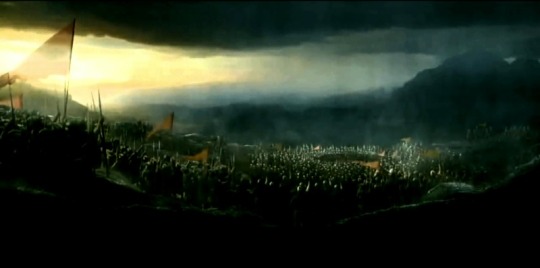

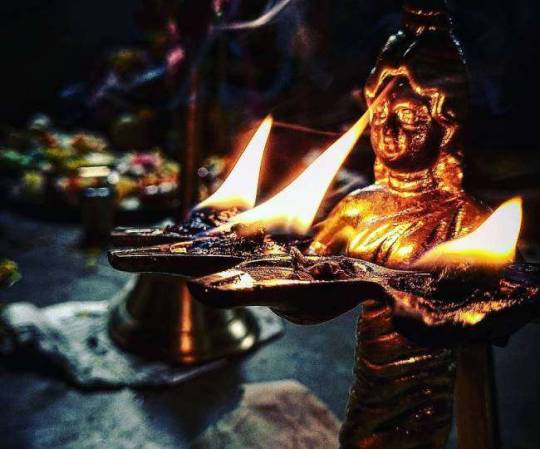


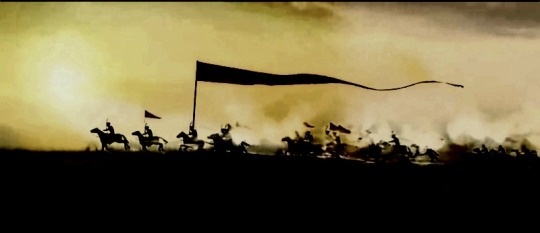
I'm gonna start a series about the dasarajna yuddha, popularly known as battle of ten kings. Most historians call it a prototype of Mahabharat while some want to make it in into a third epic. This is also the world's first recorded war. In this series i will try to dig up verses from rigveda and try to compile them with translations and my two cents.
If you can provide better translations pls do not hesitate to reach out or correct me
Since I do not have a seperate taglist i will tag everyone and anyone who does not want to be notified about this series can tell me and i won't tag them in further parts. Conversely, if you want to be tagged pls tell me.
Tags : : @thewinchestergirl1208 @budugu @yehsahihai @vaijayantheee @chaanv @rambheemisgoated @iam-siriuslysher-lokid @asarcasticcaffeinatedslytherin @mizutaama @jeonmahi1864 @bromance-minus-the-b @ronaldofandom @sabi5 @saanjh-sakhi @maraudersbitchesassemble @whyismynamecommon @nyotamalfoy @rambheemlove @lite-teesko @jjwolfesworld @shreyalokesh @amnmich
#rig veda#dasarajna yuddha#battle of ten kings#indian history#prototype#ancient india#stories from vedas#desiblr#desi tumblr#mahabharat
76 notes
·
View notes
Text

3 notes
·
View notes
Text
RG Veda, Soma et Kendappa
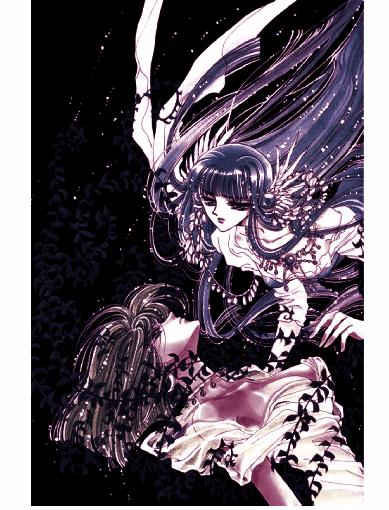


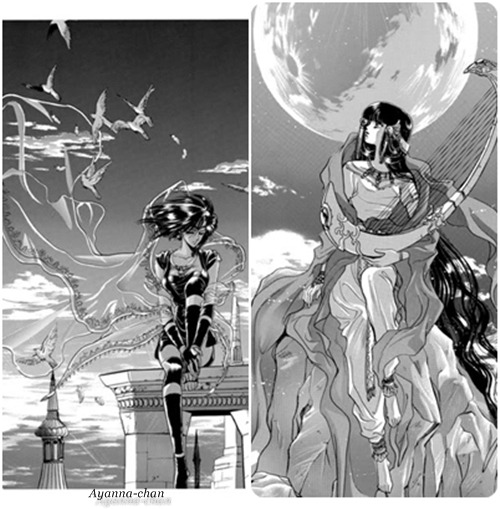
Soma-ô et Kendappa-ô
#rg veda#rg#veda#rig veda#yuri#soma#kendappa#kendappa o#soma o#clamp#clamp manga#art#queer#lgbtqia#lgbtqplus#somakendappa#kendappasoma#lesbian#lesbienne#romance lesbienne#lesbiennes#couple lesbien#couple de femmes#femmes#manga#dessin#yuri manga#manga yuri#woman love#love
38 notes
·
View notes
Text
Bro why is Rig Ved so sassy at Indra sometimes like priests really be addressing him with stuff like "lowly-minded", "blandly-speaking", "terrible-in-battles" and so on out of the fucking blue like NAHHHSAJDNSJKFJD IM WHEEZING TT0TT
#rig veda#indra#lord indra#hindu mythology#hindu gods#hinduism#hindublr#hindu#desiblr#desi tumblr#desi tag#desiposting
35 notes
·
View notes
Text

Storytelling time - Жар-птица [1/2]
I think it wasn't always so sad thought... ( ◡‿◡ )♡

And a little closeup of smiling Ashura!
#imagine that ashura#just can't handle it#ashuraou#ashura ou#trc#taishakuten#taishura#clamp fanart#clamp#アシュラ王#rgveda#rig veda#greyredroy's art#greyredroy#my art
33 notes
·
View notes
Text

Book cover of "Shastra Vidya: The Ancient Indian Martial Art of the Hindu Kshatriyas" ⚔️ 🏹 This book uses textual evidence from a variety of ancient Indian scriptures, treatises and epics, such as the Mahabharat, Ramayan, Shukraniti, Dhanurved Samhit, Nitiprakashik, Agni Puran, etc. Also illustrated. It details the history of Shastar Vidya ('weapons science'), the warrior traditions of the Kshatriyas, battle mantras, how the Kshatriyas used their traditional weapons such as the sword, mace, vajra, bhindipal (throwing club), trident, spear, bladed discus, etc. It's the first book of its kind.
#warfare#battle#indian#indian martial arts#martial arts#history#tactics#strategy#illustrated#kshatriya#combat#sword#trident#mace#texts#scriptures#books#ramayana#mahabharata#rig veda#shiva#hindu#hinduism#vedic#vajra#dhanurveda#harjit singh#archery
2 notes
·
View notes
Text
#कबीरजी_के_रहस्यमयीदोहे
Kabir Prakat Diwas 14 June
The True Name (satnaam) of God can destroy sins like fire destoys dry grass.
↓
https://www.jagatgururampalji.org/en/articles/post/can-god-forgive-our-sinful-deeds

https://www.jagatgururampalji.org/
#spritualgrowth#spirtualism#salvation#nirvana#moksha#faith in god#supremegod#spritualleader saintrampalji#sanewschannel#kabirprakatdiwas#kabir is supremegod#bhagavadgita#rig veda#consiousness#tarotoftheday#reiki therapy#beautiful quote#hare krsna#raam#kabir ke dohe#soul#heaven is here#faith in jesus#welcome to islam#guru nanak darbar#jainism#buddhism#atheist#spritualawakening#alternate universe
5 notes
·
View notes
Text
Dark the descent: the birds are golden-coloured; up to the heaven they fly robed in the waters. Again descend they from the seat of Order, and all the earth is moistened with their fatness. Twelve are the fellies, and the wheel is single; three are the naves. What man hath understood it? Therein are set together spokes three hundred and sixty, which in nowise can be loosened.
— Rig Veda 1.164.47-48
2 notes
·
View notes
Text
Lagnesh in Various houses Part 2
1st lord in 5th house
The native owner of the first in the fifth is prone to self-education, has a strong ego, a love of games (including gambling), and a creative mind. He also has a knack for management. maybe connected to investments. a fondness for prayer
Although he works for the government and enjoys sports and other enjoyable activities, he does not find much fulfilment in being a father, despite the fact that one hundred of his children go on to lead successful lives. kind, inquisitive, and creatively inclined With the loss, challenging kid interactions could arise.
A strong sense of dharma, intelligence, education, successful investments, wealth, happiness, luck, respect, high status or fame, faith and devotion to God, knowledge of mantras, interest in religious practises, high moral standards, noble qualities, dignity, and modesty are all signs of the auspicious Lord of Dharma in another house of Dharma. gains from politics or the government. Predestination to follow the same route as in the previous existence; great credit from a prior incarnation. Life expectancy is increased in this position. The born will have ordinary happiness from sons (children), lose his first child, be noble, angry, and the king's favourite if the ruler of the lagna is in the fifth bhava. (From Brihat Parashara Hora Shastra, verse 26.5)
Comments: The outcomes above pertain to progeny. These are typically accurate in the cases of the Vrishabha (Taurus) and Karka (Cancer) Lagnas, as these Lagnas force the ruler of the Lagna, who is housed in the fifth bhava (house), to enter his rashi (sign) of weakness. These outcomes are seen in those born in whose birth charts the 5th bhava is negatively impacted, such as Mesha [Aries], Simha [Leo], Kanya [Virgo], Tula [Libra], Vrishchika [Scorpio], Dhanu [Sagittarius], Makara [Capricorn], Kumbha [Aquarius], and Meena [Pisces]. With regard to the offspring, even a small unfavourable effect in the case of Lagna Dhanu (Sagittarius) and Meena (Pisces) delivers the aforementioned effects with certainty.
The reason is that in these lagnas, Guru [Jupiter] is put in the fifth bhava, and it is widely known that The Guru destroys the outcomes of the bhava he has occupied: "Sthan-Hani-Karo-Jiva" - The Guru is the destroyer (of the outcomes) of the bhava he has held. The two progeny factors—the fifth bhava and the karaka of the fifth bhava—join together if the Guru is situated in the fifth bhava. As a result, any negative impact on the fifth bhava has an impact on both of these elements simultaneously.
1st lord in 6th house
The fight of the owner of the first in the sixth is a significant subject for the native. Perhaps related to politics, medicine, courts, or law enforcement. loves sports and rivalries. Courage, royal rank, financial wealth, a weakened immune system, a propensity for illness, and the possibility of debt. Such a position, with ascending Taurus and Scorpio, heals illnesses, bestows wealth and high rank, yet awakens naysayers. A person enjoys yoga, wrestling, and athletics. Health issues, challenges, a shorter life expectancy, tragedy, misery, an unpleasant upbringing, an unfavourable start to life; propensity to be sued if other indicators support; relationship with a maternal uncle; and hard labour. interest in self-improvement, alternative healing methods, and specific diets.
Labor is essential for being able to earn good money; wealth comes slowly and only after a lot of effort, but it happens. If the Lagna ruler is in the sixth bhava, the native will not experience bodily happiness (health). The native will be troubled by the adversaries if the lagna's ruler is under the grip of a malevolent graha and there is no favourable drishti. Brihat Parashara Hora Shastra, verse 26.6
Comments:If the Lagna ruler falls in the sixth bhava, or house, that individual will become ill because the body is then linked to illnesses. The sixth bhava is referred to as the bhava of health by some astrologers. This assertion has a tiny bit of truth. It has been discovered that if the Lagna ruler is in the sixth bhava and is free from any negative influences, the native will enjoy to exercise, train in sports like wrestling, and practise yoga, which will help his body become strong and stay in good health. Shukra (Venus) or Mangala (Mars) will be placed in Bhava 6 if the lagna is Vrishabha (Taurus) or Vrishchika (Scorpio). The native will be in good health because they will be in their own rashi (sign). Tula [Libra], and in Bhava 6 the Lagna ruler Shukra will be exalted. Such a person will therefore relish the thrill of health.
1st lord in 7th house
The 1st in the 7th belongs to the native, who discovers himself via marriage, partnerships, and connections. may frequently travel abroad for business. A significant person in his life is a spouse and business partner. An growth in interest in the other sex, a good name and popularity, an early marriage, a lack of familial ties, and numerous opponents in the public eye. Such a person constantly yearns for things that are out of reach. The planet's destruction has a negative impact on the desires of the relationship and the financial situation. Love-match. lovely, wealthy, or kind spouse. benefits from the family of the spouse. As the ascendant's lord in the seventh house aspects his own house, he is blessed with power, fortune, and respect. Intense cravings and a strong sexual inclination.
Extended long trips , house or residence in another country. The native's wife won't live if the malefic graha ruling Lata occupies the seventh bhava (long). The native will become an aimless traveller, will experience need, will become ascetic (and sad), or he can become king depending on the benevolent graha that rules the lagna (if the graha is strong). Brihat Parashara Hora Shastra, verse 26.7
1st lord in 8th house
The 1st in the 8th's owner, a native, experiences several crises, sicknesses, losses, humiliations, and insults during his or her life. Secretive, intrigued by mysteries, esoteric knowledge, and possibly connected to the concept of death (funeral services, insurance, wills). Also, it is connected to special services and prisons. He enjoys researching the unknowable, obscure, terrifying aspects of life and occult issues, is skilled at offering helpful counsel, and reaches the highest levels of speculation. Gambling expert, frugal, dishonest, long-lived but frequently unwell, debased, has personal affairs, inherits from wedding and has financial benefit, has filthy and destructive habits, and is suicidal. A bad start to life is characterised by poor health, brittle vitality, a brief lifespan, an unpleasant appearance, a lack of regard for oneself, challenges, misery, and an unhappy childhood
Accusation propensity; legal action if additional evidence supports. There could be catastrophes, protracted illnesses, significant debts, a lack of homage, or fame. Financial support from a spouse, insurance company revenues, fame in esoteric sciences or yoga, etc. a propensity for a spiritual life, for self-denial, or for moksha. The native will be "Siddha-Vidya-Visharada" - "possessing comprehension of secret (occult) powers," sickly, dishonestly or stealing, severely insane, a speculator or a swindler, and will be inclined to go to other people's wives if the lagna's ruler occupies the 8th bhava. Brihat Parashara Hora Shastra, verse 26.8
Comments:The eighth house, or bhava, is known as the house of utmost (supernatural) wisdom. When the ruler of the lagna is in the eighth bhava, it is a given that the native will be aware of the hidden powers. This is also the bhava of bad moral behaviour. Thus it makes sense that someone like that would also be prone to thievery, gambling, and sleeping with other people's spouses. All astrologers agree that the Lagna ruler's placement in the eighth bhava is extremely harmful to one's health. There is a worry of the infant dying in infancy if Karka [Cancer] is the Lagna and the ruler of the Lagna is in the 8th bhava.
Another prevalent trait of various lagnas is soreness. The Lagna's ruler will be in his own Rashi (sign) in the eighth bhava whether Mesha (Aries) or Tula (Libra) are the Lagna. Hence, such a person won't suffer any injury. But, if malevolent grahas (planets) are present, the evil will be twofold since in this scenario, the Lagna, the 8th bhava, and the ruler of the 8th bhava will all be harmed. This will unquestionably portend illness and painful (unnatural) death. The ruler of the Lagna in the eighth bhava of the Dhanu Lagna [Sagittarius] will be in rashi exaltation, minimising the negative effects.
#astrology#vastu#vedic astrology#vastu shastra expert#vaastu#vedas#Vedic Jyotish Online#vedic astro observations#astrology numerology vedicastrology#astrology numerology vedicastrology#vedic india#vedicmaths#vedic wisdom#vedanta#rigveda#yajurveda#rg veda#rig veda#veda#Kundali#online kundali#kundali matching#kundali milan#Jyotish#hindu mythology#hinduism#hindu astrology#hindu vedic#hindu vedas#hindu
35 notes
·
View notes
